The latest evidence and resources for midwives and clinical support staff.
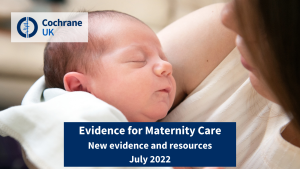
Sharing health evidence you can trust


The latest evidence and resources for midwives and clinical support staff.
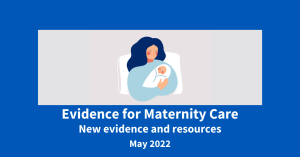
The latest evidence and resources for midwives and clinical support staff, and a chance to help us improve these blogs.

A new WHO guideline on postnatal care puts a positive experience at the heart of the care that women and their babies receive in the first six weeks after birth. It recognises that care should go beyond the mere delivery of certain services. Good postnatal care should aim to meet every individual woman’s needs, leaving all new parents, the baby and family with a positive experience of this critical period in their lives.
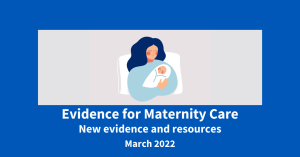
The latest evidence and resources for midwives and clinical support staff.
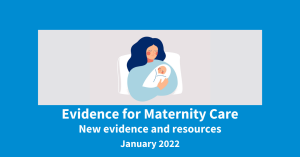
The latest evidence and resources for midwives and clinical support staff.

Dr Emily Carter explores the latest Cochrane evidence on vitamin D supplementation in pregnancy, and how it may help reduce risks for women and babies.
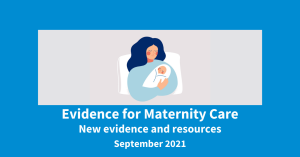
The latest evidence and resources for midwives and clinical support staff.

In this blog for maternity care providers and families, Dr Aleena Wojcieszek, clinical epidemiologist, science communicator, and honorary research fellow at the Australian Centre of Research Excellence in Stillbirth (Stillbirth CRE), and Ms Susannah Hopkins Leisher, mom to stillborn son Wilder Daniel (13 July 1999), PhD student in epidemiology at Columbia University, and chair of the International Stillbirth Alliance, look at an overview of Cochrane evidence on antenatal interventions to prevent stillbirth and perinatal death.

The latest evidence and resources for midwives and clinical support staff.

Emma Doble, who lives with Type 1 Diabetes and gave birth for the first time in 2020, reflects on her pregnancy journey, highlighting the importance of technology and shared decisions-making, and calling for better postnatal care for women with diabetes.

In this blog, written for women, health professionals, policy makers and commissioners, Rachel Plachcinski and Ngawai Moss discuss the lack of evidence for planning pregnancy and maternity care for women with two or more long term health conditions. They explore women’s experiences through their pregnancy journeys: identifying challenges and gaps in understanding, plus what matters to women during pregnancy when living with long term health conditions.

The latest evidence and resources for midwives and clinical support staff.